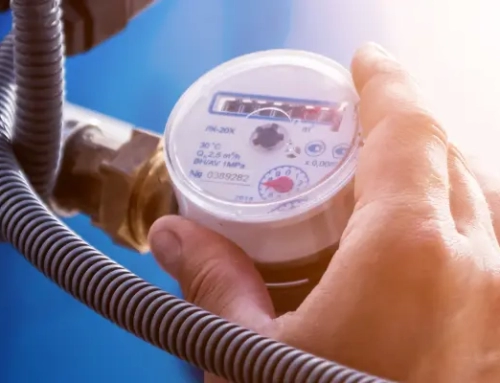Exploring renewable energy certificates for businesses

In today’s climate-conscious market, businesses are becoming increasingly committed to reducing their carbon footprints in line with the government’s “net zero by 2050” target. A simple and effective way to do this is by transitioning to renewable energy sources.
Opting for a renewable electricity supply backed by Renewable Energy Guarantee of Origin (REGO) certificates is a good starting point. These certificates, a form of Renewable Energy Certificates (RECs), provide assurance that your electricity is sourced from renewable generation, supporting your business’ sustainability goals.
This post will explore renewable energy certificates, how they work, and how they can reduce the carbon emissions associated with your business.
What are renewable energy certificates?
Renewable Energy Certificates are tradable energy commodities that represent proof that 1 megawatt-hour (MWh) of electricity was generated from a renewable energy resource.
These certificates serve as a mechanism to track and trade renewable energy, ensuring that the electricity you consume is sourced from renewable generation.
By purchasing RECs, consumers and businesses can claim the environmental benefits of renewable electricity, supporting the transition to cleaner energy sources even if the physical electricity used comes from the grid.
How do renewable energy certificates work?
When a renewable energy facility produces electricity, it generates one REC for every megawatt-hour produced. These certificates can then be sold on the market, either bundled with the electricity itself or separately.
Purchasing RECs helps validate a supplier’s claims about how green their energy supply is. This clarity then enables companies to claim that they’re using renewable energy, which allows them to report lower electricity consumption emissions and position themselves as environmentally responsible.

Types of renewable energy certificates
Renewable Energy Guarantees of Origin (REGOs)
A REGO certificate helps consumers and businesses understand how much of their energy comes from renewable sources. The UK’s official energy regulator, Ofgem, issues one REGO certificate for every megawatt hour (MWh) of energy produced from accredited renewable sources like solar panels or hydroelectric power.
These certificates serve as proof of any renewable energy in a supplier’s fuel mix disclosure (FMD). An FMD requires all UK suppliers to inform their customers annually about the mix of fuels used to generate the electricity they receive.
Renewable Obligation Certificates (ROCs)
Renewable Obligation Certificates (ROCs) are another type of REC used in the UK. They’re part of the Renewable Obligation scheme, which places an obligation on UK electricity suppliers to source an increasing proportion of their electricity from renewable sources.
Suppliers meet this obligation by presenting ROCs, which are issued to renewable energy generators based on the amount of electricity they produce.
The Renewable Obligation Scheme
The benefits of renewable energy certificates & how they can help your business
Promoting renewable energy is essential for reducing carbon emissions in the UK. As we mentioned above, the ROC scheme played a big part in encouraging energy suppliers to source green energy. This is a crucial step towards the UK’s goal to reach net zero by 2035, when we aim to generate all our electricity from clean sources.
On top of that, trading RECs like an energy commodity boosts the renewable energy market. This approach not only lowers demand for fossil fuels but also increases demand for renewable energy, driving market growth. Let’s explore the benefits of RECs for your business – they can:
1. Improve your carbon footprint
One of the primary benefits of RECs is their ability to help businesses lower their carbon footprint. By purchasing RECs, you ensure that the electricity you consume is matched by renewable energy generation.
This means that for every MWh of electricity backed by a REC, your company can report zero emissions. This can significantly reduce your company’s carbon footprint and contribute to global efforts to combat climate change.
2. Inform your supplier choices
When selecting an energy supplier, it’s essential to choose one that aligns with your sustainability goals. RECs allow you to verify whether your supplier sources electricity from renewable generation.
Energy consultants, like us, can assist you in making informed decisions about your supplier, ensuring you receive green energy while keeping your budget in mind.
3. Strengthen your brand & ESG credentials
Using RECs to source renewable energy can significantly strengthen your brand’s image and support your environmental, social, and governance (ESG) credentials.
Customers are increasingly looking to support green brands, so by reporting lower emissions and using green energy, your business can improve its brand image and customer loyalty.
4. Attract investors
Demonstrating your commitment to sustainability can attract investors and stakeholders who prioritise responsible business practices.
Using green energy can also reduce your business’ dependence on fossil fuels and mitigate risks associated with global supply chain disruptions. This gives your business more stability, which is beneficial from both an investment and operational perspective.

Ensuring your business’ electricity is green
To ensure the green power you are supplied with is genuinely renewable, it’s advisable to verify information on Ofgem’s Renewables and CHP Register.
Additionally, there are several other ways to confirm the authenticity of your green energy supply:
1. Double-check your contract
It’s important to verify that your contract specifies the use of renewable energy. Some suppliers may advertise renewable power but still sell you a majority non-renewable contract if you haven’t explicitly requested green energy. Ensure that your contract clearly states your preference for renewable power to avoid any misunderstandings.
2. Check your supplier’s Fuel Mix Disclosure
Suppliers are required to provide a Fuel Mix Disclosure (FMD), detailing the sources of the electricity they supply. Reviewing this disclosure can help you verify the percentage of renewable energy in your supplier’s mix. This transparency ensures that you’re genuinely supporting renewable energy generation.
3. Look for independent accreditations
Independent accreditations provide additional assurance that your electricity is green. Look for certifications from reputable organisations that verify the renewable energy credentials of your supplier.
Renewable Energy Certificates offer a powerful tool for businesses looking to reduce their carbon footprint and support renewable energy generation. By purchasing RECs, you can ensure that the electricity you consume is matched by renewable generation, helping you lower your emissions and enhance your brand image.
If you’d like to explore ways to make your business greener – whether that’s switching to a green energy deal or investing in renewable energy technology – we’re here to help you every step of the way. From procuring greener energy to advising on available grants and setting up renewable energy technology, our team of experts can support all your energy needs. Contact us today to get started.





